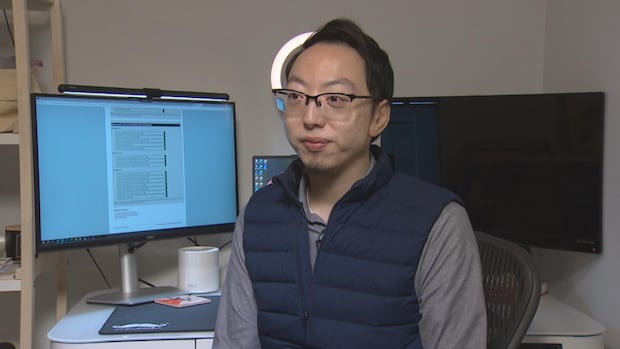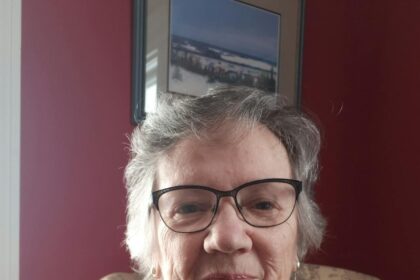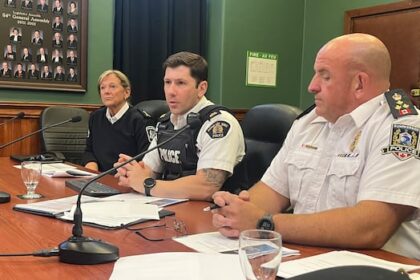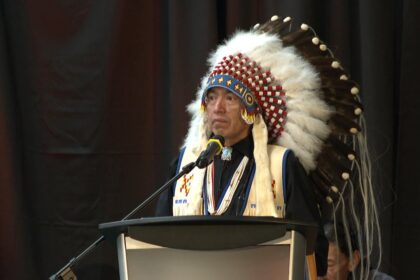British ColumbiaA deaf voter who recently moved to Burnaby, B.C., says Elections Canada should do more to accommodate those who need interpreters to cast their vote in person.Yat Li says he needs an American Sign Language interpreter to vote — but it takes 6 days to request oneCBC News · Posted: Apr 19, 2025 4:03 PM EDT | Last Updated: 10 hours agoYat Li, who recently moved to Burnaby, B.C., says he faced a six-day wait to have an interpreter come with him to cast his ballot. The Burnaby man is deaf. (Ryan McLeod/CBC)A deaf voter who recently moved to Burnaby, B.C., says Elections Canada should do more to accommodate those who need interpreters to cast their vote in person.Yat Li has been deaf since birth, and says he tried to request an American Sign Language (ASL) interpreter to help him vote during advance voting for the federal election, which began on Friday.But the Burnaby man says that, while he was heartened to see Elections Canada placing accessibility information prominently on its website, he faced a six-day wait to have an interpreter accompany him to cast his ballot.Li says Elections Canada should do more to improve accessibility for those who are hard of hearing and need to vote in person.WATCH | B.C. voter says accessibility for deaf people a concern: B.C. voter with hearing loss says accessibility an issue despite Elections Canada’s plansElections Canada published its first accessibility plan in 2022, with a goal to ensure equal participation for people with disabilities in elections. But Pinki Wong is hearing from one voter who says they are facing barriers”I think six days is a little bit too much,” he told CBC News. “A polling station could potentially even integrate video relay services, so that someone who does require [an] interpreter doesn’t need six days’ advance notice.”Li also says the form to request an interpreter had a lot of hoops to jump through.”I think there could be an opportunity to streamline the digital access process for folks who are deaf and hard of hearing, and for anyone with any other disability as well too,” he said.”Given how, you know, we need to ensure there’s a barrier-free society for Canadians.”Li says the form he had to fill out to request an interpreter contained a lot of questions, which left him frustrated and caused a barrier to him casting his ballot. (Ryan McLeod/CBC)Vinu Abraham Chetipurackal, a deaf accessibility consultant based in Vancouver, says deaf-blind voters have told him that polling workers may not be trained to communicate effectively with those that can’t hear.”Voting by mail and online voting don’t account for deaf-blind accessibility — for example, lack of screen reader compatibility or unclear ballot formatting,” he told CBC News in an email.Screen readers are software programs that turn text into audio for blind or partly blind people. Elections Canada asks for feedbackJames Hale, an Elections Canada spokesperson, says the non-partisan elections body has been working on accessibility for years.A 2024 update from Elections Canada lists its efforts to improve accessibility, including consultation with various disability advocacy groups for ASL and Langue des signes québécoise (LSQ).”Given the shortage of ASL/LSQ interpreters across the country, it would be extremely difficult to staff enough interpreter positions to make such a service available at polling locations and local [Elections Canada] offices,” the organization’s 2024 progress report states.”The participants also noted that interpretation services should be saved for those who require emergency services.”Make sure your assigned polling station meets your #accessibility needs. Check your voter information card or enter your postal code in our Voter Information Service: https://t.co/ppzliUJ0IM pic.twitter.com/Lh8kjiZsVr—@ElectionsCan_E Hale says voters who aren’t already accommodated can request special disability provisions by dialling 1-800-361-8935. “If electors have an experience that they want to share with us, you know, either positive or negative, we want to hear from them,” he added, pointing to an online feedback form. Advance voting runs from April 18-21, and mail-in ballots must be requested by April 22. Election Day is April 28.With files from Pinki Wong
Deaf voter in Burnaby, B.C., highlights inaccessibility for voting in person











